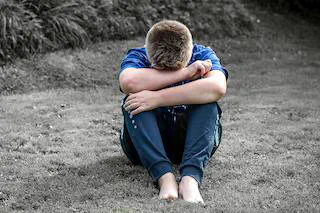
Skin problems and acne: the root of the problem
- Matthieu P.J.
- Wellbeing
- July 3, 2022
The way people address problems in their life is fascinating. Look at skin problems for example: there’s always a cream, lotion or magic pill to sell you to help with that. To the point that you may conclude that good skin is a genetic rarity, and that most of us are condemned to have a bad skin and pay for life-long treatments to try improving it. Wrong!
How do I know it’s wrong? Experience and observation.
Observation
Ever noticed some patterns in people with good skin versus those who don’t? Granted, there’s always the edge case, but generally speaking how good a person’s skin looks like boils down to a few simple things:
- The quality of their diet
- If they smoke
- If they drink
- If they exercise
Yes… I won’t even mention cosmetic products because I don’t think it does much. Basic hygiene is all you need for your skin.
Smokers have bad skin, just pay attention next time you speak to a smoker: look at their face in details—but without being awkward, OK? People who drink also have dehydrated skin which hurts it. So drinking and smoking combined is an accelerator for ageing. But the biggest influencer is… food! What we eat, what we put in our body is what we will sweat through the pores of our skin. And that is particularly true on the face.
Experience
I never smoked but used to drink, so I’ve seen the damages on my skin. The morning after a night out drinking—and within reason—I would feel I look 10 years older when seeing my face in the mirror. My poor skin was so dehydrated. I’ve realised that drinking was disrespectful to my body and skin and stopped years ago.
I’ve experienced with my diet for many years: I recovered from being overweight; I discovered how eating wheat was making me chronically tired; I fine-tuned what would work for me or not. When I was a teenager, my acne was so severe that I was put on medications, the type that goes with a blood test every month to check it’s not screwing up your liver… Eventually the acne receded, with time rather than with the medicine I would say—or any of the miracle cosmetic treatments I used that barely helped. The skin on my face bears no mark of that period at all—unlike some people. But what stayed with me for many years was the trauma: a deep trauma of feeling like I looked awful and nobody wanted to be around me or love me. It certainly didn’t help that I was being made fun of and ashamed of how I looked—and yes, even within my own family. I felt like a monster, and my sense of self-esteem got so damaged… So the psychological dimension of acne was far beyond the physical aspects for me. Eventually I healed that, but that remains one of the most difficult times of my life.
I wish I knew back then what I know today: that diet is the key factor in all of that. I remember my GP (the same one who prescribed me the dangerous drug) who mentioned as a joke that “grandmas used to say no sugar and no oil to heal acne”, as a way to ridicule old beliefs and instead quoted proudly the outcomes of scientific papers that nowadays had ‘proven’ no link between diet and acne. Looking back, I should have gone with the ancestral wisdom instead of the pride and self-important modern medicine…
Why do people ignore the importance of their diet in all sort of health issues, including how good their skin look? Because we’ve been formatted to ignore the obvious and look at the superfluous. We’ve been told we can’t take care of ourselves on our own and need external fixes to fix us (the superfluous) because we’re sort of broken. Interesting, considering humans have been around for tens of thousands of years and the industries selling us at a large scale all those stuff we don’t need is relatively recent. So, yes, we’ve been led astray… Because, ladies and gentlemen, what you eat is the obvious: a key influencer for so many things in your life: how your body looks like, how healthy you are, your energy levels, even your mood levels and basic willpower. It’s all connected!
So what would I do differently to cure my acne in the past teenager me? I would tell him: your body is adjusting to your hormones, your body is changing and you need to pay attention to your diet. Eat healthy and your skin will get through that with minimum pimples. That is:
- Lots of fruits and veggies
- No processed food
- No fried food
- Fats are OK but healthy fats!
- No sugar: it’s simply a poison! If you crave the sweet taste, take honey and eat it with lots of fibres.
- Don’t make carbs your main calories intake! Eat less carbs, but more healthy fats and good protein
- Above all: stay away from wheat and all the derived: bakery, pastries, pasta, pizza, etc. Modern wheat is also a poison to your body!
- You can have dairy but you need a lactose enzyme supplement to digest it, otherwise your skin will pay the price (something true to this day for me). Humans are not naturally equipped to digest the milk of another species (cow, goat etc.)
- Keep fats and carbs in separate meals as much as possible
If you only need remembering three things, then:
- No wheat
- No dairy—unless with a lactase tablet taken before
- No sugar
Of course, you need to start from where you are… so instead of a ’no’ you can read the above as: little wheat/little dairy/little sugar to get started, and see how it affects you. But what I recommend is the end goal.
I would encourage anybody with skin problems, of any age, who wishes to change what they see in the mirror to carefully consider what I explained in this article. Dump the illusion of having to rely on an external source (drugs, cosmetics, supplements, etc.) and know that you don’t need to pay anything to improve your skin. You just needed a bit of education—it’s now done—and next you need to experiment, go through trial and errors, see for yourself what hurts your skin and what makes it shine. And above all, you need to restore your self-confidence trusting that with food alone and healthy habits (no smoking, moderate drinking, doing some sport) you will just look good!


